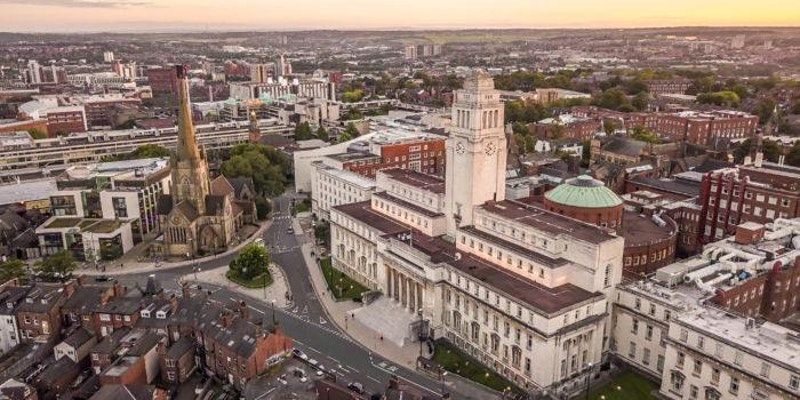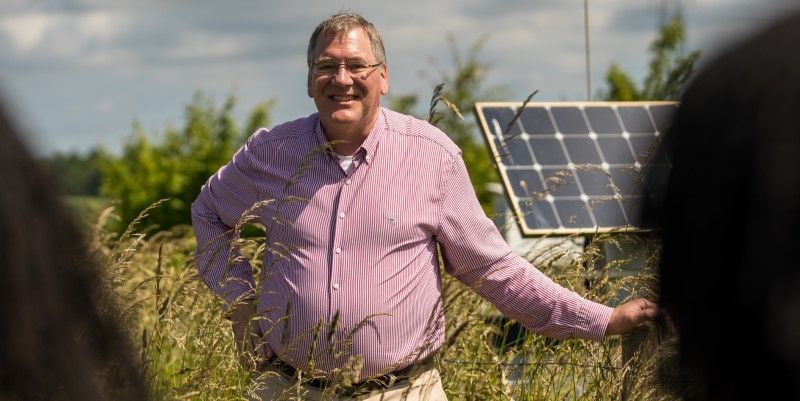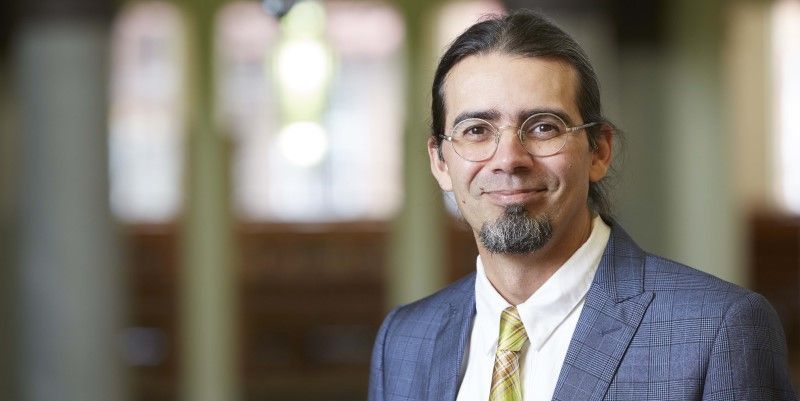
Two new Deans have been appointed to drive forward the University’s global vision.
Professors Steve Banwart and Manuel Barcia have jointly taken up the position of Dean for Global Development.
The University Strategy – Universal Values, Global Change – is rooted in its place in the world and the desire to make a difference. The new Deans will be instrumental in driving forward Leeds’ vision to be a truly international University with global reach and impact through internationally relevant, accessible, high-quality education and world-changing research and innovation.
Professor Hai-Sui Yu, Deputy Vice-Chancellor, leads on the University’s international strategy. He said: “Through impactful global collaborations, universities are uniquely positioned to drive down inequalities and make our world a fairer, more humane and sustainable place with greater equality of opportunity for all.
“To realise this potential, the Deans will focus on equitable academic and practitioner partnerships, with a particular emphasis on both training and research in the Global South. We are thrilled Steve and Manuel will be bringing their significant talents to the role – they continue the work begun in the role by Professor Andy Dougill, before his departure last spring.”
Professor Banwart, pictured below, is Director of the Global Food and Environment Institute at Leeds and holds the University’s Leadership Chair in Integrated Soil/Agriculture/Water research.
He said: “It’s essential, given the challenges facing humanity, that universities such as ours do everything in their power to lead effective global partnerships. We must harness their world-changing research and high-quality education with practitioners to achieve a greater good that is far more equitable in its impact and reach.”

Professor Barcia, pictured below, is Chair of Global History and Pro-Dean: International for the Faculty of Arts, Humanities and Cultures.
He said: “The University’s existing portfolio of projects, focused especially on health systems and climate resilience, provides a strong foundation for strengthening and extending future partnerships. I’m looking forward to grasping the opportunities – together with Steve – that this role provides to make a difference.”
Professor Banwart champions the integration of research on soil and water resources into the study of earth’s critical zone – the surface layer of the planet from bedrock to atmospheric boundary layer that provides most life-sustaining resources. He studied at the University of Iowa and the Swiss Federal Institute of Technology – Zurich, arriving at Leeds in 2016 having held positions in Stockholm, Bradford and Sheffield.
Professor Barcia studied history at the Universities of Havana and Essex, going on to teach at Essex and Nottingham before arriving at Leeds in 2006. His research focuses on the history of slavery, the slave trade and global imperialism in the 19th century. He has also been a non-resident fellow at the Hutchins Center’s Afro-Latin American Institute (Harvard University) and a visiting fellow at the Gilder Lehrman Center for the Study of Slavery, Resistance and Abolition (Yale University).

Leeds has been highly successful in recent years in securing Global Challenge Research (GCRF) and Newton funding – the major UK Government schemes that distribute Official Development Assistance (ODA) funds.
We rank third nationally for number of awards, allowing us to work on many multi-institution and multi-country initiatives that have had a significant positive impact.
Despite UK Government cuts to ODA spending, a diverse range of funding opportunities remain, such as EU-Africa programmes, bilateral schemes, Wellcome Trust, Leverhulme Trust, private foundations and alumni donors. These can initiate and catalyse collaborative research and student education partnerships.
Professors Barcia and Banwart took up their new posts at the start of September.